Addition skills Normal Addition & Subtraction Worksheets for Ages 4-8
13 filtered results
-
From - To
Boost your child's math proficiency with our "Addition Skills Normal Addition & Subtraction Worksheets for Ages 4-8". These engaging, age-appropriate worksheets help children master essential addition and subtraction skills through vibrant visuals and fun exercises. Designed to align with early education standards, each worksheet progressively builds confidence and advancements. Ideal for both classroom use and homeschooling, our resources encourage independent learning and support classroom objectives. Equip your child with the foundational math skills necessary for their academic journey. With consistent practice, young learners can achieve numerical fluency and a lifelong love for math. Explore our full range of worksheets today!
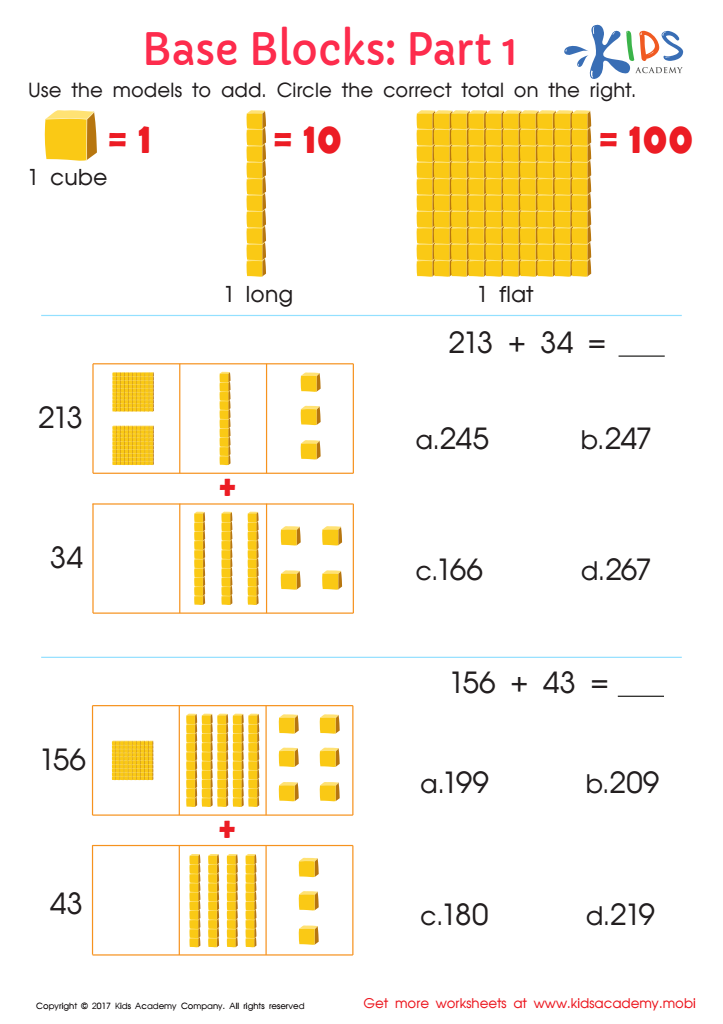

Base Ten Blocks Worksheet: Part 1
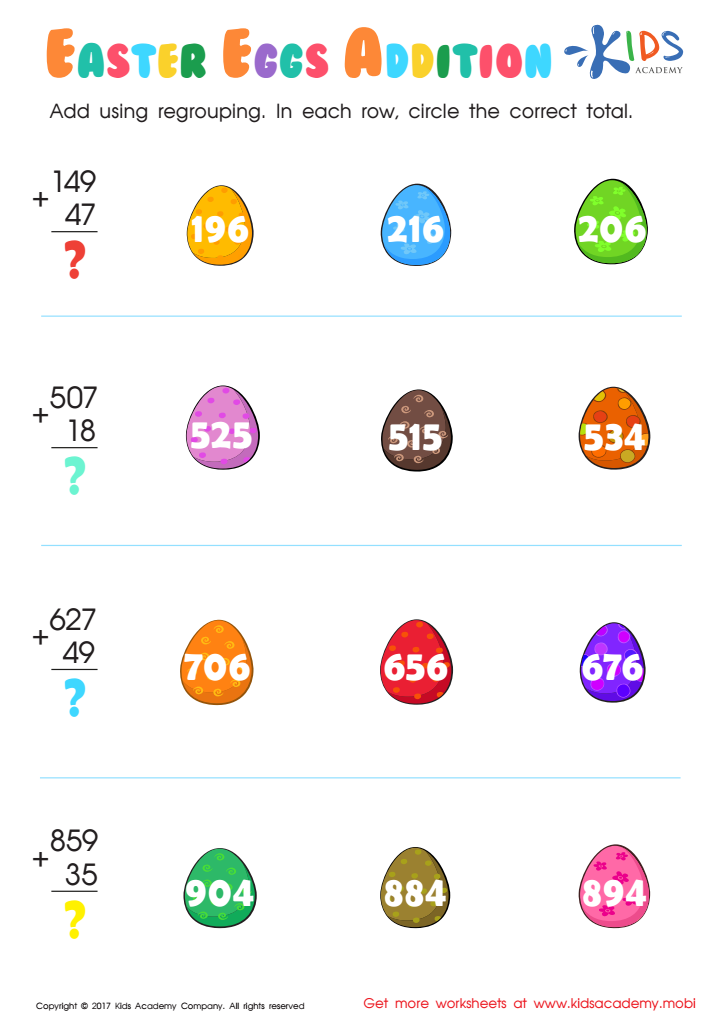

Addition with Regrouping Worksheet


7 Continents and 7 Seas Worksheet


Adding Flower Petals Worksheet
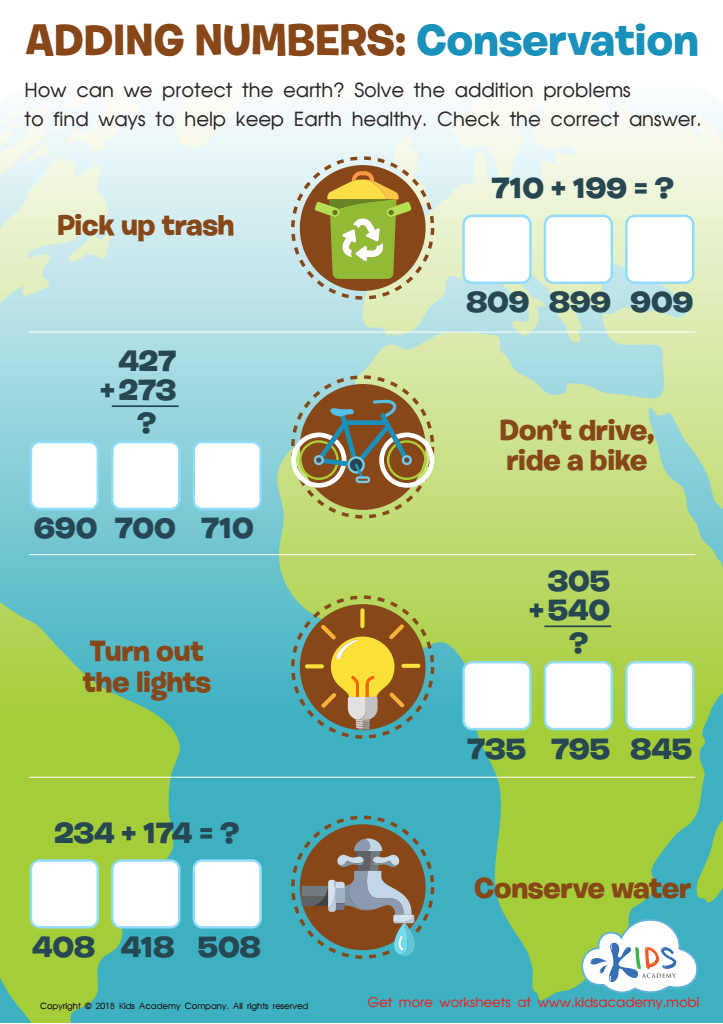

Adding Numbers: Conservation Worksheet
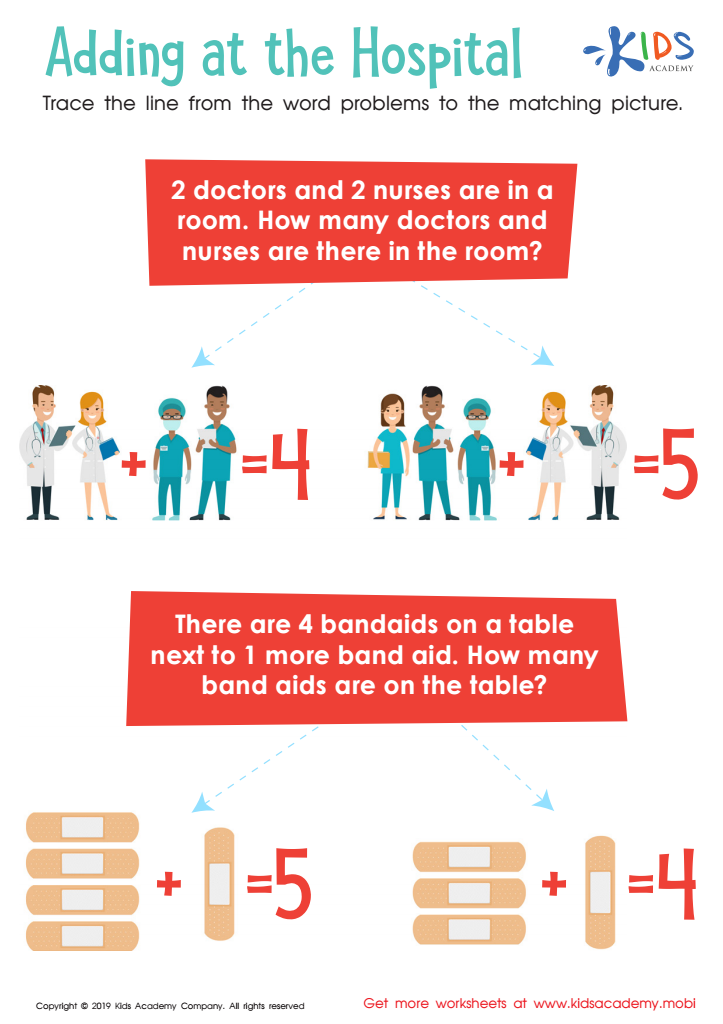

Adding at the Hospital Worksheet
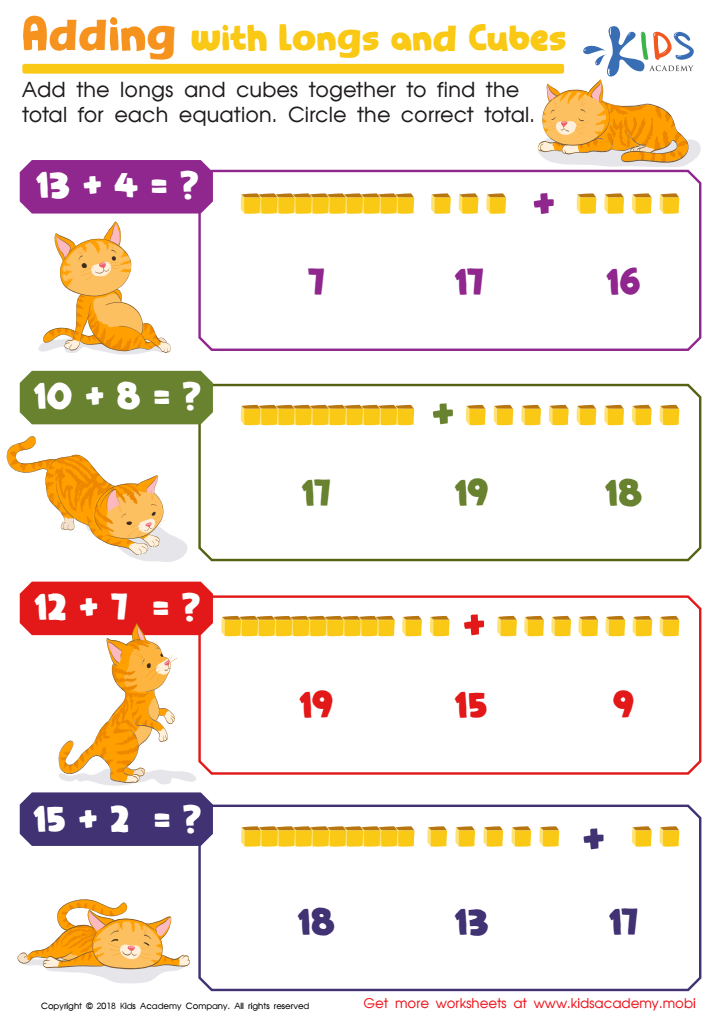

Adding With Longs and Cubes Worksheet
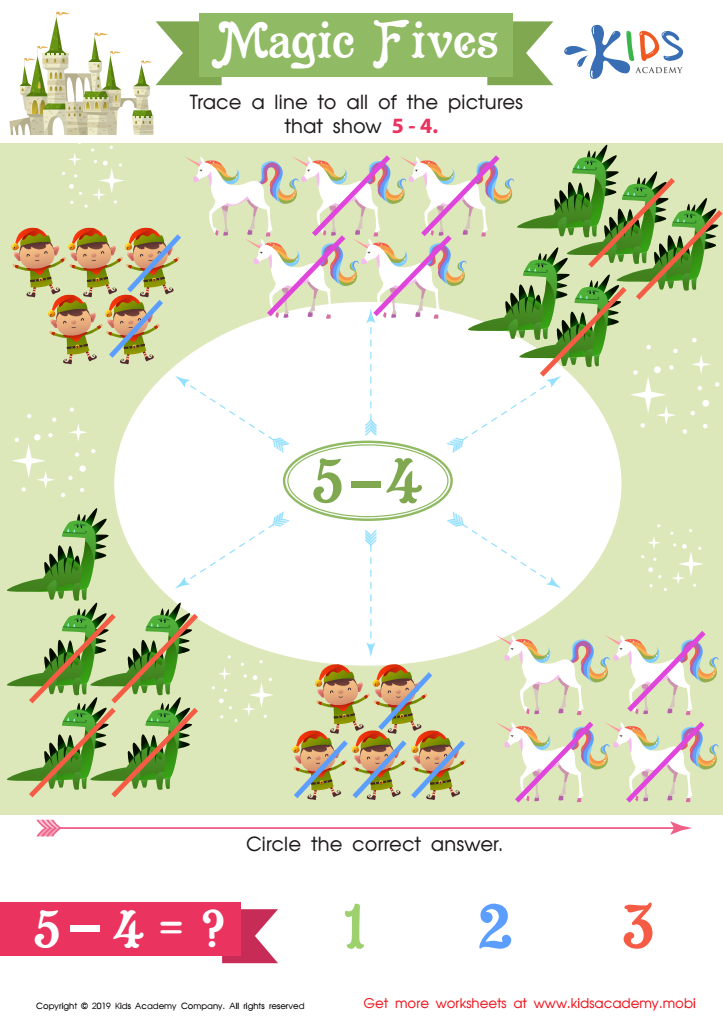

Magic Fives Worksheet
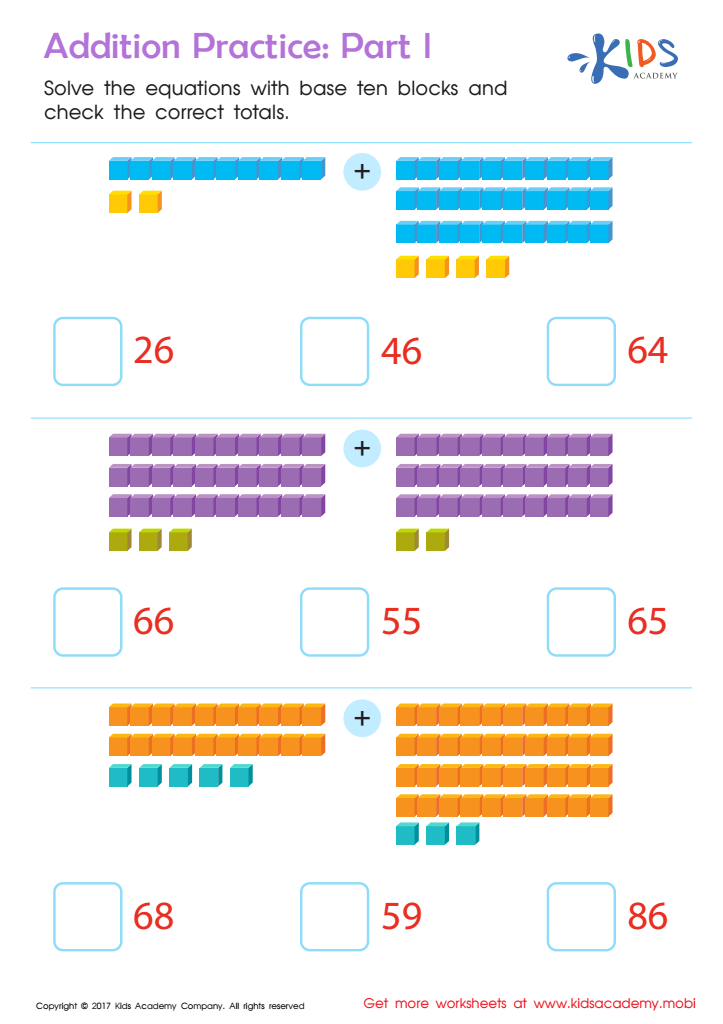

Addition Practice Sheet: Part 1
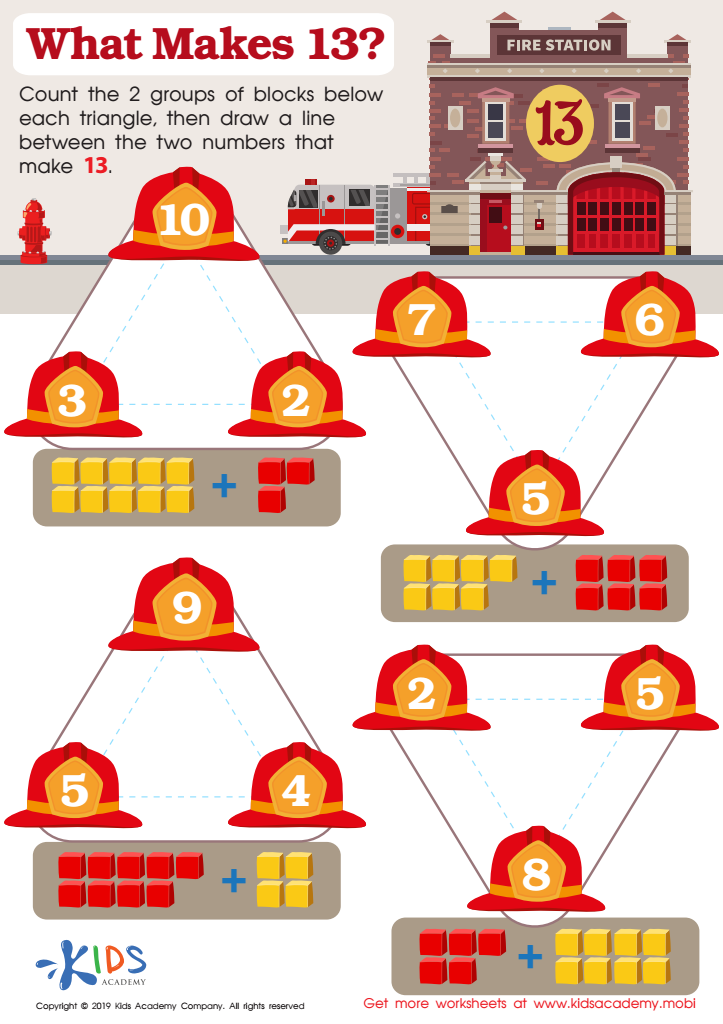

What Makes 13 Worksheet
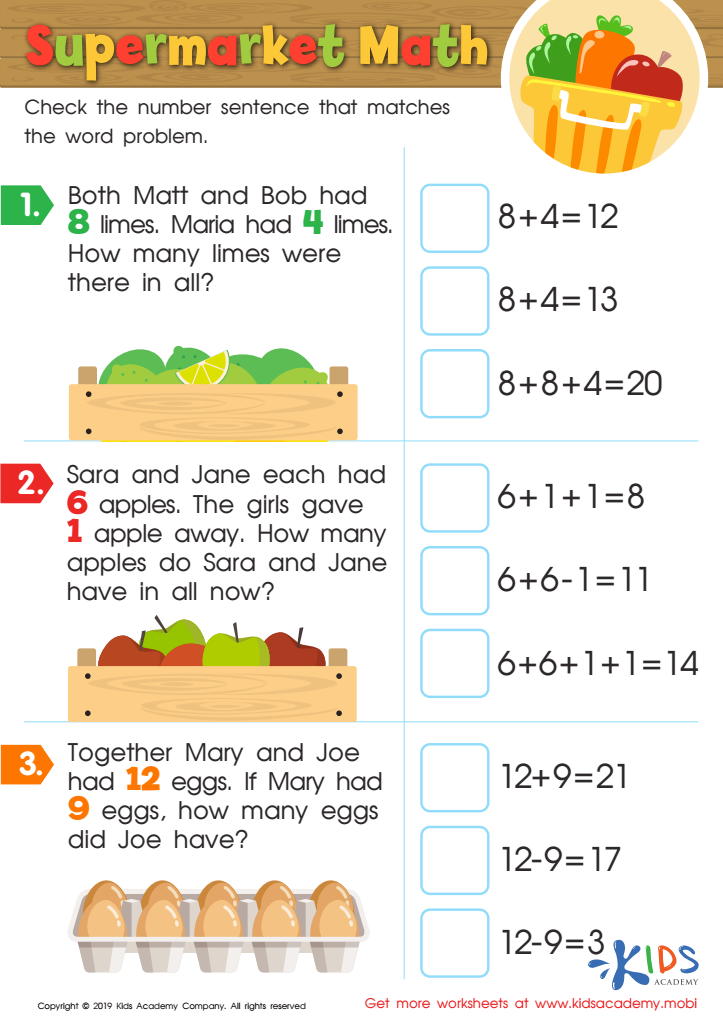

Supermarket Math Worksheet
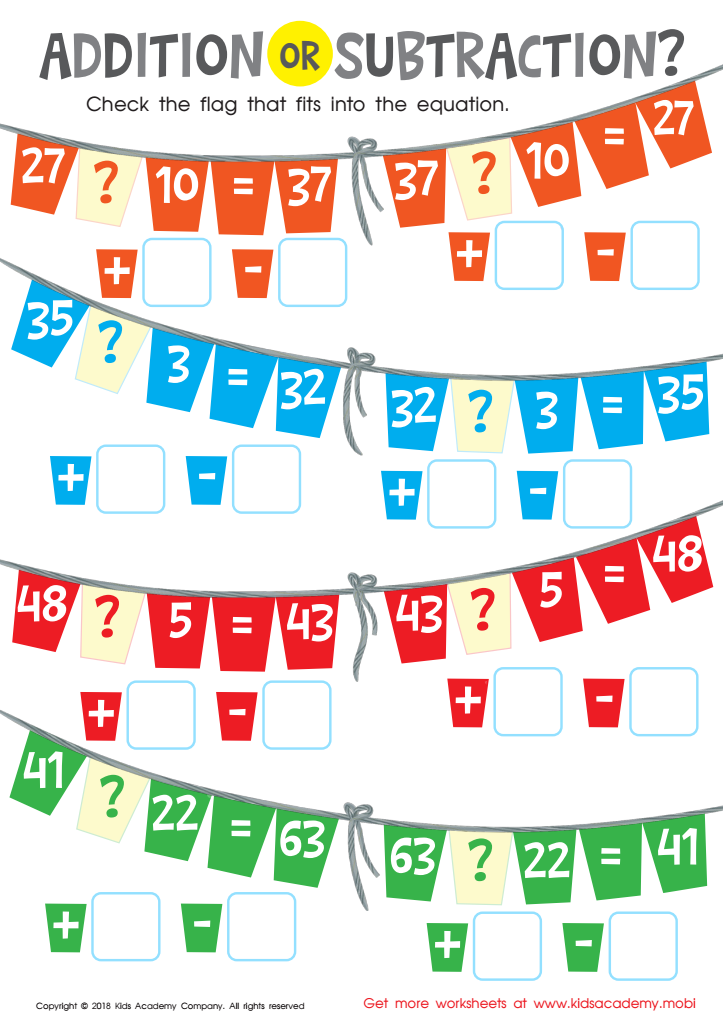

Addition or Subtraction? Worksheet
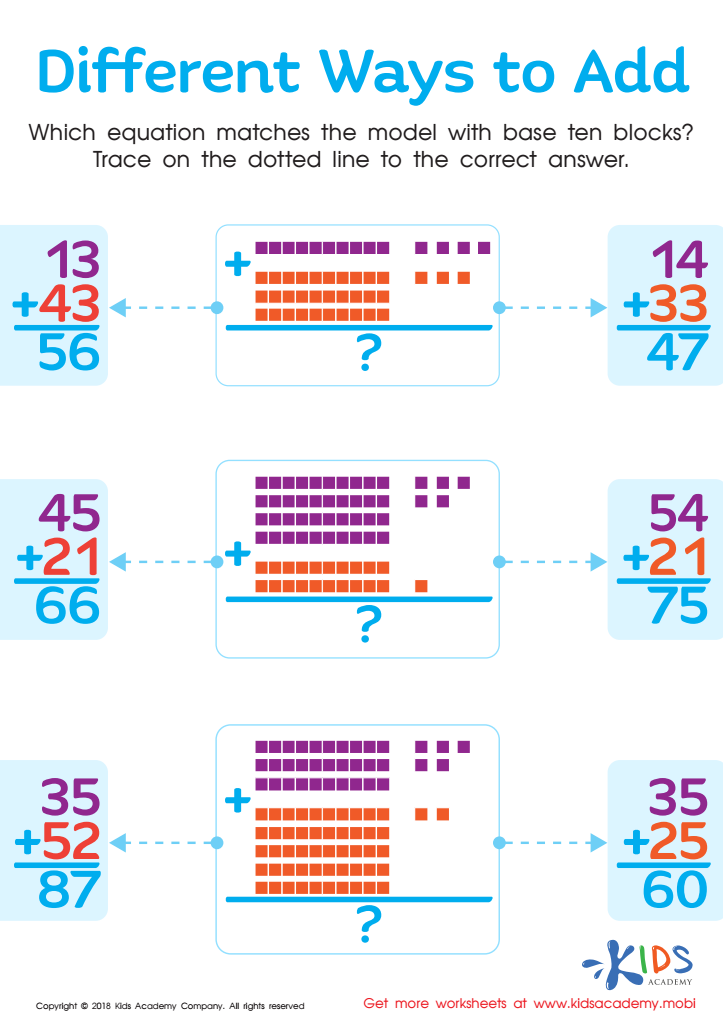

Different Ways to Add Worksheet
Parents and teachers should prioritize fostering addition and subtraction skills in children aged 4-8, as these are foundational to mathematical literacy and overall cognitive development. Learning these basic arithmetic operations enhances a child's numeracy, an essential life skill that underpins more complex mathematical concepts and real-world applications, such as problem-solving and logical thinking.
At an early age, engaging with addition and subtraction aids in the development of mental math skills, allowing children to solve problems more efficiently. These operations are fundamental for understanding more advanced topics such as multiplication, division, fractions, and eventually algebra. Mastery of basic arithmetic sets a strong foundation for future academic success in mathematics, as well as other STEM subjects.
Moreover, practicing addition and subtraction exercises the brain, improving memory, attention span, and executive functions. Engaging in arithmetic at an early age fosters confidence and reduces math anxiety, setting a positive tone for future learning experiences.
Beyond academics, these skills are useful in everyday scenarios, such as telling time, handling money, and sharing. They also prepare children for socio-economic interactions involving numerical understanding and encourage logical thought processes and problem-solving abilities crucial for daily decision-making.
Therefore, teaching addition and subtraction is not just an academic requirement but a critical aspect of holistic childhood development.

 Assign to My Students
Assign to My Students
















